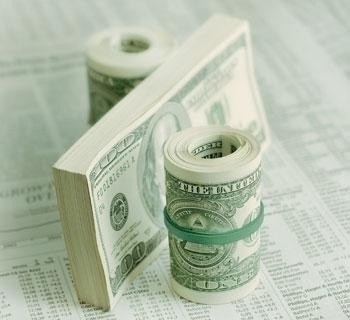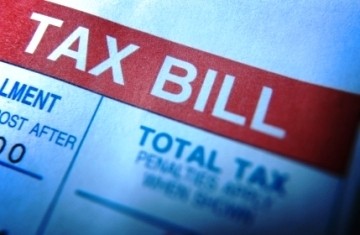MA Property Taxes Among Nation’s Worst For Businesses
Thursday, October 11, 2012

Massachusetts per capita property taxes of $1,845 placed the state alongside Connecticut, New Jersey, Vermont and Rhode Island with the poorest scores on property taxes, which also factors in taxes on capital stock, intangible property, inventory, real estate transfers, estates, inheritances and gifts, in the non-partisan think tank's index.
"What we're looking at in this index is not just rates, we're looking at the base as well," said Scott Drenkard at the Tax Foundation, one of the report's co-authors.
Drenkard pointed to the state's capital stock tax on business equipment and machinery as one of the less business-friendly aspects of property taxes in Massachusetts.
"That sort of tax is an impediment to having capital formation and therefore growth," he said.
Rising In The Ranks
The Bay State ranked 22nd overall in the index, improving over the past several years from 28th place in 2011 and 23rd in 2012.
Massachusetts scored points with the Tax Foundation's experts for having a single, low individual income tax rate of 5.3 percent, earning a ranking of 15th in the category. However, its unemployment insurance tax was the second-worst in the country.
At 8 percent, the state's corporate tax side is relatively high and came in 33rd.
"Massachusetts gives away a pretty substantial portion of its tax base through giving credits to businesses that engage in favorable activities," Drenkard said.
One way for Massachusetts to improve on its ranking on the corporate tax side, said Drenkard, would be to remove those special credits for what authorities have deemed as favorable activities and bring rates down overall.
"That's a better path for long-term growth."

Dueling Rates

One local factor not included in the Tax Foundation's index is the dual tax rate system in place in some of the Commonwealth's cities and towns, although Drenkard said it is an important one.
"There's no reason for residential property to be taxed at a lower rate," he said.
"In many cases the line is blurred between what a business is and what an individual is."
"One of the things that we run into in Worcester is the dual tax rate, and that's always a concern," said John Rainey, director for the Central Region of the Massachusetts Small Business Development Center Network at Clark University.
"In general terms, when you have a dual tax rate a lot of businesses tend to label you less business friendly than when you have a single tax rate."
Worcester's fiscal year 2012 residential tax rate has been set at $16.98 per $1,000 of assessed value. The city's commercial tax rate has been set at $29.07 per $1,000 assessed valuation.
Rainey said the issue has been exacerbated by the property revaluation conducted earlier this year by the city. Nearly 2,400 abatements were filed by both residential and commercial property owners who said the city overvalued their property.
"There's a lot of crazy things going on right now with Worcester taxes," said Rainey.
Taxes Just One Part Of The Equation
But Victor Matheson, an associate professor of Economics at Holy Cross, said taxes are just one part of the equation when it comes to choosing where to operate a business.
"It's a bit crazy to focus solely on tax climate because taxes are not the only thing that firms are worried about."
Matheson said firms are also concerned about the ability to attract a high-quality labor force and to sell their products locally. Good infrastructure, schools and a well-educated population with expendable income can be big factors in success as well.
"By lots of those measures, Massachusetts actually does extremely well," said Matheson, noting that the state's per capita incomes are among the highest in the country.
"That means we have lots of wealthy consumers with fat wallets willing to buy goods and services."
According to Matheson, the incessant focus on reducing the size of government and tax rates over the past 30 years has missed the mark when it comes to growing a healthy economy.
"When you measure the tax climate, you're essentially only measuring what government takes away from businesses without having any measure of what government provides to businesses," he said.
"What we should focus on is effectiveness of government. If we are taxing businesses and providing poor services, then that is dumb whether we are in a low tax climate or a higher tax climate."
However, said Matheson, if a small increase in taxes would enable government services that would bring a large increase in benefits to businesses and the public, then having a low tax rate can actually make for a worse business climate.
Related Articles
- Worcester Could Face Flood of Abatement Requests After Tax Bills
- Worcester’s Contentious Tax Debate
- Worcester’s Business Tax Breaks Create Jobs - and ‘Inequity’
- 2400 Property Owners File For Tax Abatements
- City Bracing For Flood Of Tax Appeals
- NEW: Businesses Urged to ‘Show Up’ in Force for Tax Rate Hearing




Follow us on Pinterest Google + Facebook Twitter See It Read It